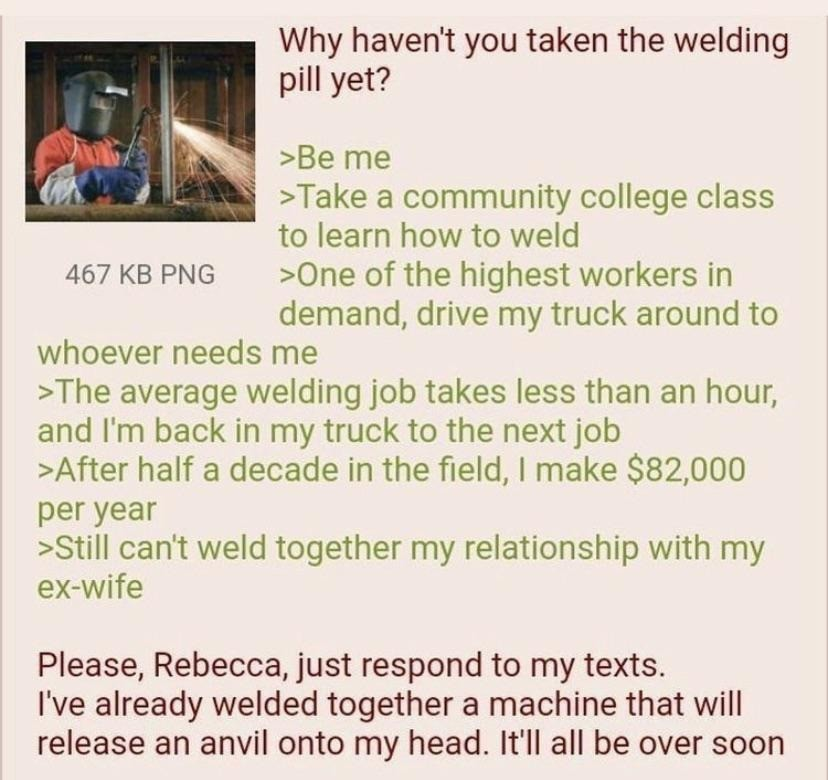this post was submitted on 30 Sep 2024
683 points (98.0% liked)
Greentext
4390 readers
1496 users here now
This is a place to share greentexts and witness the confounding life of Anon. If you're new to the Greentext community, think of it as a sort of zoo with Anon as the main attraction.
Be warned:
- Anon is often crazy.
- Anon is often depressed.
- Anon frequently shares thoughts that are immature, offensive, or incomprehensible.
If you find yourself getting angry (or god forbid, agreeing) with something Anon has said, you might be doing it wrong.
founded 1 year ago
MODERATORS
you are viewing a single comment's thread
view the rest of the comments
view the rest of the comments

I wear a respirator while welding, but it’s only really a hobby for me so far. But now I’m curious, which filters actually catch manganese?
I’m usually worried about accounting zinc (on galvanized steel), because it can make you ill for a couple days, unless you drink a glass of safety milk.
I know you said you're just a hobbyist, but a positive air pressure respirator is just the way to go when you're a welder. It's basically an over the head setup that works like those old hazmat suits you'd see in movies. It's got a fan or something blowing in slightly higher pressure air, so none of the air outside can get in as the air is always moving out due to the difference in pressure. What it means is that ALL particulates, gasses, and whatever else you don't want to breathe have no way to get to you unless it somehow gets into whatever is supplying your air.
They make fanny pack sized units with batteries that are mobile, which works for me as I've had to go down in ships and up on scissor lifts to do welding before. I believe they also make slightly bulkier stationary setups that are significantly cheaper but often require other equipment (eg. Specialized compressor) to function. The all in one setup i got is quite expensive (about $2k new) but I managed to find it for quite a bit cheaper used on ebay. I'm comfortable doing this as I've been a welder for 15 years and have experience with quite a few different PAPR systems and am confident in my ability to troubleshoot any problems. If you're completely relying on something like this for safety without really knowing how it works, I'd recommend definitely getting something that comes with a warranty. The parts can be finicky, delicate, and expensive.
I’d love a PAPR system, but I’m mostly just plug welding body panels on project cars once in a while. I spent a little extra on the welding machine (buy once cry once), but it’s still 1/2 the price of a PAPR.
They look super nice for switching between welding and grinding though. If I was doing it more than a couple hours a week (if that) I’d start saving for one for sure.